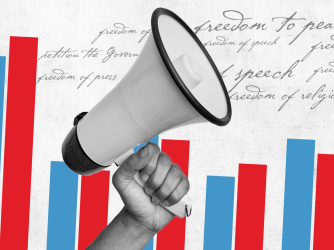Table of Contents
In hit to academic freedom, Fourth Circuit holds public universities can punish faculty for ‘lack of collegiality’
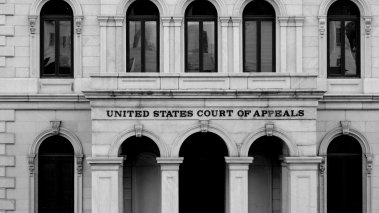
Shutterstock.com
The U.S. Court of Appeals for the Fourth Circuit in Richmond, Va.
The role of a faculty member at a college or university goes well beyond teaching and scholarship. As a function of “shared governance,” faculty play a critical role in leading an institution’s educational programming and initiatives. But yesterday’s ruling by the U.S. Court of Appeals for the Fourth Circuit leaves faculty vulnerable to discipline for criticism of their institutions outside of class if it involves academic initiatives impacting the institution beyond the faculty member’s personal field of research. Per the troubling holding in Porter v. Board of Trustees of North Carolina State University, institutions can punish professors for sharing their views simply by declaring a dissenting or unpopular critic of institutional decisionmaking to be “uncollegial.”
The case involves Stephen Porter, a tenured professor of Higher Education in North Carolina State’s Department of Leadership, Policy and Adult & Higher Education, where he teaches graduate-level statistics and data analysis. He complained several times in recent years that NC State’s diversity initiatives resulted in “abandoning rigorous methodological analysis in favor of results-driven work aimed at furthering a highly dogmatic view of ‘diversity,’ ‘equity,’ and ‘inclusion.’” Over the course of two years, he criticized these initiatives’ impact on the department’s higher ed degree program, with which he was affiliated, during a 2016 department meeting, in a Spring 2018 email to colleagues, and in a personal blog post written that fall.
As a result, NC State removed Porter from the higher ed program on grounds that he was insufficiently collegial. He sued. After a federal district court loss, he appealed to the Fourth Circuit, and FIRE filed an amicus curiae brief in support of his appeal last September.
Narrowing Garcetti’s academic freedom exception
In the 2006 case Garcetti v. Ceballos, the Supreme Court held that when government employees speak “pursuant to their official duties, the employees are not speaking as citizens for First Amendment purposes, and the Constitution does not insulate their communications from employer discipline.” But, critically, Garcetti made an exception for faculty at public institutions engaged in “speech related to scholarship or teaching.”
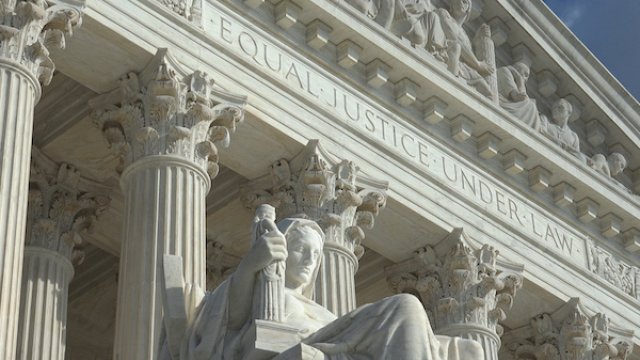
Wandering in the Garcetti desert: FIRE files brief urging the Supreme Court to protect academic freedom
News
FIRE filed an amicus brief asking the Supreme Court to clarify that limitations to public employee speech put in place after Garcetti v. Ceballos do not apply to university faculty.
The Fourth Circuit’s decision considerably narrows this exception, effectively placing faculty speech about shared institutional governance and decision-making beyond the First Amendment. The court reasoned that Porter did not speak as an academic, but rather “in his capacity as an employee,” concluding Porter’s speech “was not a product of his teaching or scholarship” and is, therefore, “unprotected.”
Thus, the court held, even though his comments concerned scholarship within his department, they were not made in class, or in relation to his personal scholarship or teaching, and, as such, did not qualify for protection.
This decision risks further emboldening universities to punish faculty who are critical of university governance, amplifying an already-pervasive problem. Just look at public institutions like Nassau Community College, where the board of trustees ordered the faculty union to cease criticizing the board as well as the outgoing president of the college. Ole Miss was also ahead of this unfortunate curve in 2020 when it fired a professor for publicly criticizing the university’s decision to deny a grant for a study on mass incarceration.
In dissenting from the majority in Porter, Judge Julius N. Richardson argued Porter’s speech was protected “because, in each instance, he was speaking on a matter of public concern.” Importantly, Richardson notes faculty are fundamentally unlike other types of public employees, observing that, for example, “[a] police department has different interests in controlling its employees than a public university does.” Therefore “we must look through the lens of a university and its mission . . . [where] dispute and disagreement are integral, not antithetical, to a university’s mission.”
Recognizing the value of internal criticism and the fundamental importance of free speech, FIRE is deeply disappointed that the Fourth Circuit has decided to restrict faculty rights to voice criticisms of their institutions.
Institutions depend on candid commentary, evaluation, and criticism from those who work within them — who, by virtue of that relationship, are invested in their success — to make strategic decisions and maintain relevance in a changing culture. This kind of dialogue is particularly crucial in the public higher education context, where furthering institutional goals of teaching and learning is unquestionably a matter of public concern. If faculty are afraid to speak up about the direction of educational initiatives, the lack of candid feedback will surely lead institutions to be less responsive to the needs of the communities they serve.
Recognizing the value of internal criticism and the fundamental importance of free speech, FIRE is deeply disappointed that the Fourth Circuit has decided to restrict faculty rights to voice criticisms of their institutions. We hope other courts will not follow suit and will instead maintain a strong defense of faculty rights.
Recent Articles
FIRE’s award-winning Newsdesk covers the free speech news you need to stay informed.
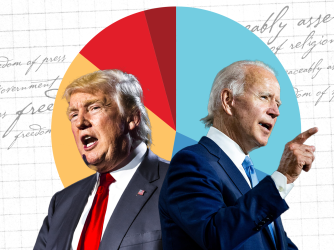
New FIRE poll: Americans equally skeptical Biden or Trump will protect First Amendment rights
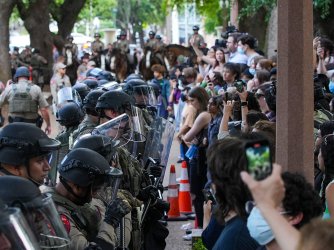
Here’s what student journalists need to know about covering campus protests

